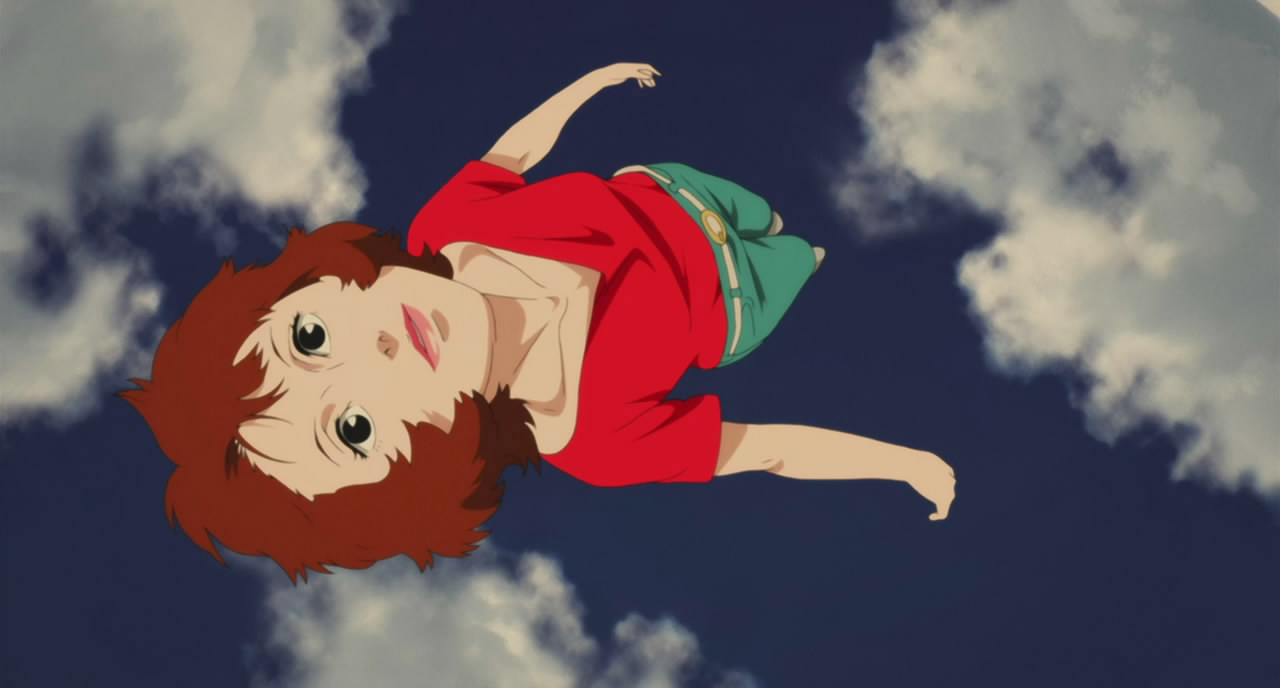Retro Review by Lydia Creech
Paprika is a sci-fi, high-stakes mystery thriller. Sometime in the near future, scientists have created a device that allows them to record and see people's dreams. When the device is stolen by terrorists, rips appear in the very fabric of reality, and dreams start materializing in the real world. It's up to the lead scientist Doctor Atsuko Chiba and her alter-ego (?) Paprika to track down the missing devices before dreams and reality merge for good.
More than anything else, Paprika is an assault on the senses. It is colorful, frenetic, and weird in the best way. I consider the film's opening title sequence to be the best showcase of Kon’s creativity and skill of world building. In just under two minutes, Kon not only establishes Paprika’s powers and playful personality, but also plants the thematic seeds that he explores in the rest of the film. In addition to being a sort of Dream Goddess, Paprika easily and fluidly navigates a dense visual world of advertisements, personal photographs, computer screens, and even graphics on T-shirts. She puts on and sheds identities both personal and public at the drop of a hat. Kon is fascinated with where the individual and collective meet, and in the character Paprika, he creates an avatar that makes walking that line look easy. All of Kon’s films deal with this duality in some way, but I find Paprika to be the most energetic and fun. I think it is the perfect culmination of all his thematic obsessions from across his career.
Kon uses anime to explore the nature of the world around us by holding it up to fantastical mirrors. In his first film, Perfect Blue, he delved into the psyche of a retiring pop star, partly by critiquing the distortion of reality that the Internet can bring about. In Millennium Actress, Kon surveyed almost the entirety of Japanese history through the lens of cinema (which constitutes a sort of collective memory). Tokyo Godfathers asks what a miracle is. His anime series Paranoia Agent examines the influence and consequences of the media. In similar veins, Paprika uses dreams (and cinema, which has been considered akin to dreaming) to comment on real life.
Cinema’s power lies in its ability to be both an individual and shared experience. A film is a director’s specific vision, their dream (according to auteur theory, anyway), and somehow they are able to translate it for the audience to see it, too. It is no surprise to me that Paprika, in addition to being in total command of the dream world, is also a self-proclaimed cinephile. In fact, she often appropriates famous characters as she moves across the dreamscapes. The dreams of Konakawa, the detective character, adhere to genre conventions. They both take mass produced images and incorporate them into their own dreams. Later, they sit in a (dream) movie theater and watch Konakawa’s dream projected onscreen. Do dreams influence cinema, or does cinema influence dreams?
Kon also susses out the negatives of where the individual and collective meet. In the recurring nightmare parade sequence, the screen is crowded over with images of cultural signifiers from around the world. It is a vision both frighteningly personal and somehow universal. As the dream escapes into reality and more and more people add their dreams to it, the images grow even more bizarre. The logic of what is happening is totally nonsensical, but just like a dream, seems like it might make sense in the context of the moment. As the world grows ever busier and interconnected, it may seem like nightmare to try and sort out every individual vision. It takes someone as image savvy as Paprika (or Kon himself??) to mediate between worlds and make it a fun ride.
As a self-proclaimed cinephile, too, I love how Paprika is so unabashedly a movie about movies (directors always seem to be making love-letters to their medium). It reaffirms what’s so great about movies in the first place and holds them up as cultural repositories for all our most important stories. There is value in being cine-literate. Paprika is a joyful celebration of the form. Plus, it’s so masterfully done, from the score to the editing to the style of animation. It’s my favorite of all anime films (including those by Miyazaki).
Paprika is Kon’s fourth and final film before his death in 2010. I get so sad every time I am reminded that he is no longer with us. He had such a unique vision to share, and I always wonder what else he would have had to say about the Internet or cinema or life since 2006.

